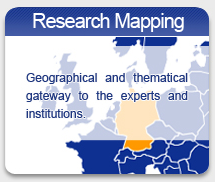Social Aspects of Education and Training
Challenges facing European education and training systems
European education and training systems are faced with many important challenges and pressing questions concerning how they can contribute to the development of globally-competitive, knowledge-based economies and ensure socially-cohesive and equitable societies? For instance, how can opportunities be re-distributed and accessed over a learner’s lifetime so that they contribute to productive socialisation, identity-making and enhanced life chances? How can education and training institutions, environments and programmes contribute to competitiveness, welfare, social cohesion and also democratic citizenship?
Increasingly, these challenges mean the European education community must seek new ways to address current social, economic and political realities. What can we do about growing inequalities, or the prejudices that accompany migration and destabilise communities? How can we manage significant demographic changes facing Europe, or ensure that in struggle for public resources the social objectives of education and training are protected? As we are all aware, the kind of answers we give to these decisions affect whether and how education can help realise a socially-just Europe.
Important topics and questions
Faced with these challenges we might ask:
What does the European education community (for instance policy-makers, researchers, teachers, administrators, parents and students) need to know, and what resources can they draw upon, to support their decisions?
How can we ensure policies and programmes that successfully combine socio-cultural objectives with employment and economic growth?
How can more efficient and more equitable education and training systems be built to ensure a socially-just Europe?
What strategies can we pursue to enhance the quality and relevance of education and training for all?
Knowledge from research can help
How the European education community answers these questions has a direct bearing on what individuals and groups can be, and do. For this reason, the stakes are high.
Knowledge from research can help. Reliable knowledge that is generated from leading social scientists working in the field of teaching and learning can contribute directly to our understanding of these processes. For example, they can point to research evidence to help us address questions such as:
Which governance mechanisms are able to deliver empowering opportunities for learners and families? Read more about governance and how community might engage.
How might social science research be used to better inform education policymaking and practice? Are there examples of good practice? Read more.
Which education and training policies and practices contribute to preventing or overcoming inequalities, exclusion, and disengagement? Read more about Training, Work and Lifelong Learning and also about Education Inequalities and Social Justice.
What social justice principles govern education and training policies concerning the distribution of life-chances? Read more about Education Inequalities and Social Justice and Social Development of children.
Do resources in education make a difference, to whom, and where are they best invested? Read more about governance and research, policy and practice.
How, and with what consequences, do different kinds of assessment practices affect learners and learning? Read more.
What kinds of education policies and programmes for early childhood education and care contribute to social equality and more inclusive education? Read more.
How can education and training contribute to the smooth integration of (im)migrant children in European schools and societies? Read more.
What are the causes and consequences of early school leaving? What prevention strategies appear to work, where, under what conditions and with what outcomes? Read more about Education Inequalities and Social Justice and also about Curriculum, Pedagogy and Assessment.
How might socially-inclusive models of higher education be developed while still ensuring excellence and competitiveness? Read more.
What is the relationship between existing inequalities (cultural, social and economic) and digital technologies as a resource in schools and homes? Are there policies, programmes and practices that can be identified as effective in facilitating learning opportunities and capabilities? Read more.
What is the relationship between gender and education, and what strategies reduce gender inequalities? Read more.
How can education and training systems nurture creativity and innovation? Read more
